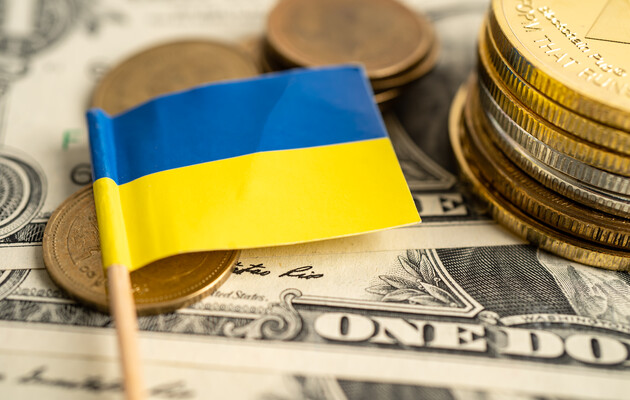
U.S.-ROK Information and Communications Technology Policy Forum 2023
The following is the text of a joint statement by the Governments of the United States of America and the Republic of Korea.
Begin text:
The United States and the Republic of Korea reaffirmed their shared commitment to open, interoperable, reliable, and secure digital connectivity and information and communication technologies to support the growth of a competitive and innovative digital economy during the U.S.-ROK ICT Policy Forum, hosted in hybrid format by the United States on September 12 and 13, 2023.
The dialogue included discussions with private sector representatives from both countries on the promotion of open, interoperable, and secure fifth generation (5G) wireless technologies, networks, and services; public-private partnerships to support the development of the digital economy in third countries; and international coordination in areas such as artificial intelligence (AI), cloud policy, and secure and trusted flows of data.
Both countries recognized the importance of promoting the development and deployment of open, secure, and resilient 5G networks in advanced and emerging economies to help ensure countries, companies, and citizens can trust that firms providing ICT equipment, software, and services are also focused on strengthening the security of the ICT ecosystem and protecting privacy, intellectual property rights, and respect for human rights. Both countries also reaffirmed their commitment to an inclusive, open, and transparent system of Internet governance based on multi-stakeholder models. Additionally, the two countries determined to collaborate in the following areas:
- In coordination with U.S. and ROK telecommunications operators and suppliers and in alignment with the Prague Proposals on Telecommunications Supplier Diversity, the United States and the ROK plan to cooperate to promote trusted options for telecommunications supplier diversity in third countries in the Indo-Pacific region, including Open RAN 4G/5G wireless networks. This may include jointly providing technical assistance and project preparation activities such as feasibility studies, trial demonstrations, support for testing and integration infrastructure, and financial support for commercial deployments.
- By expanding existing workstreams like the ongoing Open RAN Technical Discussions, the United States and the ROK intend to explore opportunities for research and development cooperation on 5G and 6G, including open and interoperable approaches to architecture like Open RAN.
- The United States and the ROK recognize the need for an inclusive approach to developing AI governance that supports the development of trustworthy AI aligned with democratic values and human rights while preserving a competitive and pro-innovation AI ecosystem and expect to cooperate to promote this vision by exploring collaboration in standardization and exchanging best practices in multilateral bodies.
- Both countries take note of the opportunities that AI and other emerging digital technologies provide and recognize the need for a discussion on principles to address topics such as promoting digital literacy and digital ecosystems to adapt to technological advancement and seek to mitigate the risks posed by the use of digital technologies while fostering digital innovation. Both countries plan to closely cooperate in exploring ways to build global solidarity, including by jointly holding forums or workshops, in order to discuss and implement international principles on emerging digital technologies.
- The United States and the ROK plan to share best practices on maintaining a resilient and robust cloud infrastructure and to strengthen cooperation on research and development, people-to-people exchanges, and mutual investment to promote the growth of the cloud industry in both countries.
- The United States and the ROK recognize that unlicensed devices that employ Wi-Fi and other unlicensed standards contribute to providing low-cost wireless connectivity, and support innovation and economic growth. Both countries support keeping the entire 6 GHz band open for unlicensed uses. As such, the United States and the ROK plan to cooperate to promote maintaining the 6GHz band open for unlicensed use among third countries within the Indo-Pacific region.
- The United States commends the ROK on joining the Freedom Online Coalition and for hosting the upcoming third Summit for Democracy. The two countries agree to explore opportunities to expand our cooperation on digital freedom issues.
- The United States and the ROK expect to cooperate to promote the Cross Border Privacy Rules in third countries and support the development of the Global CBPR Forum.
The U.S. Department of State’s Ambassador at Large for Cyberspace and Digital Policy Nathaniel Fick led the U.S. delegation, which included officials representing the U.S. Department of State, the U.S. Department of Commerce’s National Telecommunications and Information Administration, International Trade Administration, the U.S. Agency for International Development, the United States Trade Representative, and the Federal Communications Commission. Ministry of Science and ICT (MSIT) Vice-Minister Park Yun-kyu led the ROK delegation, which included officials representing MSIT, Ministry of Foreign Affairs, and Personal Information Protection Commission.
End text.
Official news published at https://www.state.gov/u-s-rok-information-and-communications-technology-policy-forum-2023/
The post U.S.-ROK Information and Communications Technology Policy Forum 2023 first appeared on Social Gov.
United States - Social Gov originally published at United States - Social Gov





